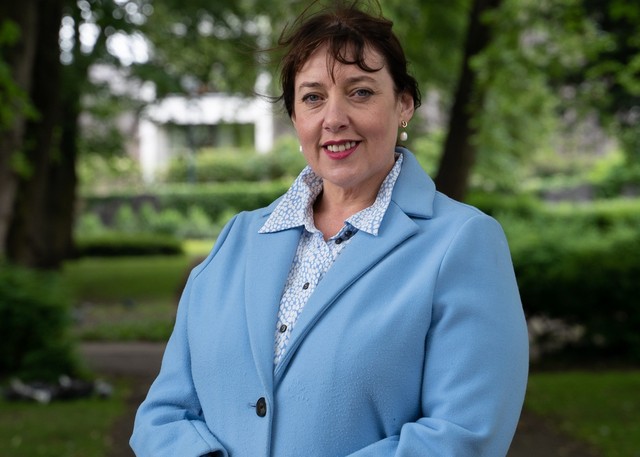
By Joe Locker, Local Democracy Reporter
Cash which goes towards Nottingham City Council staff working to reduce crime has been slashed with “little notice”, prompting a review to determine whether the jobs are now sustainable.
Council documents show Nottinghamshire’s Police and Crime Commissioner Caroline Henry has slashed funding which contributes towards 10 roles in the Labour-run authority’s Crime and Drugs Partnership (CDP) team.
The council staff affected are tasked with reducing crime and improving community safety.
It follows an independent review, commissioned by Mrs Henry, of the functions, roles and responsibilities in the commissioner’s office.
The Office for the Police and Crime Commissioner (OPCC) says it will instead be spending the money on increasing the number of jobs in its own team.
Mrs Henry says her office will however continue to fully-fund two council staff members who work to help victims of slavery. Modern slavery cases in Nottingham have doubled in the past year.
The percentage contribution which is being made towards the salaries of 10 job roles has been “reduced from previous years”, council documents reveal.
The crime commissioner’s office had initially planned to slash its portion of funding for the job roles entirely, however it has since been agreed a lesser sum of money will be given because the decision was made with very little notice.
In 2021/22, the council’s Crime and Drugs Partnership (CDP) received £90,000 from the OPCC towards staff salaries, and this was due to be stopped altogether.
Following discussions it was agreed it will now be reduced by just under £30,000 to £60,029.
“Following discussions, it was agreed that transition funding would be given for this year, as very little notice was given on the decision to cut funding,” the council says.
Documents state the council’s CDP team structure is now being reviewed as a result to “ensure sustainability”.
The funding for 2022/23 will only cover between five and 16 per cent of the staff members’ salaries, and the rest will have to be sought from the council itself.
Mrs Henry told the Local Democracy Reporting Service: “I am committed to continuing to work collaboratively with the Crime and Drugs Partnership and other partners to prevent and respond to crime and support victims. We all have a shared ambition to make Notts safe and use our resources to the best effect to do that.
“Following an independent review, the Office of the Police and Crime Commissioner for Nottinghamshire has employed more in-house commissioning and analytical staff this year to increase its capacity.
“In addition, we are also making sure that the public funding we handle is used in the most efficient and effective way.”
In total the council will be accepting £140,000 from the crime commissioner, with £60,029 going towards the partial financing of the 10 CDP jobs, while the rest of the money will fully-fund two staff members in the Slavery Exploitation Risk Assessment Conference (SERAC) team.
The staff in this team work to identify individuals who may be vulnerable to modern slavery.
The crime commissioner will supply the council with £40,227 to cover each
post.
It comes as 57 cases of slavery have been reported to the city’s Slavery Exploitation Team in the past 12 months to July 2022.
Overall cases of slavery and exploitation have almost doubled in the last year, with an average of 21 cases a month referred to the team so far in 2022, compared to 12 a month in 2021.
In May 2019 a Slavery Exploitation Risk Assessment Conference (SERAC) was established, bringing together Nottingham City Council and Nottinghamshire Police as a way to combat this rise.
The commissioner’s office says the rise is believed to be a sign that Nottingham’s response to the issue “is getting better”.
Cllr Neghat Khan (Lab), Nottingham City Council’s Portfolio Holder for Neighbourhoods, Safety and Inclusion, said: “In Nottingham we are committed to tackling this form of criminality and the multi-agency SERAC partnership works to identify hidden cases, support survivors and prevent further harm.
“Nottingham City Council has a dedicated team to co-ordinate the partnership, educate professionals and manage cases where there are identified indicators.
“This approach, increasing resilience against slavery and exploitation, includes multiple partners from statutory, private and voluntary sectors who share the objective of making Nottingham slavery-free.”
Mrs Henry added: “I will continue to work with partners to identify gaps in our response and ensure that we react to areas of improvement swiftly and efficiently.
“We all know that the statistics regarding modern slavery only represent a fraction of the exploitation that takes place, that is why I want to ensure that as many people as possible, public and professional, know what to look for when spotting the signs.”

















